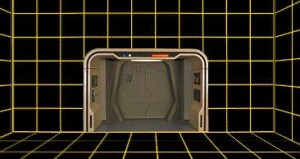“Computer, discontinue program!” — Deanna Troi
So here I was feeling a little lazy today and thinking “I really don’t feel like writing a full post,” and Ta-Nehisi Coates, one of my favorite writers at The Atlantic has written an absolutely pertinent short piece on the whole electronic/book fracas and the opportunities it presents. I strongly recommend you read the whole thing. It will only take a few minutes, not because it’s light reading, but because he makes the case with surgical precision.
Ta-Nehisi Coates: In the Year 3030, Everyone Will Still Read.
The first point is that writing (and reading) will continue and thrive even though the means of reading is going to radically change in the years to come. I would hope that anyone reading my blog would be already open to this possibility, or better, already convinced.
The second point is more specific and interesting to writers and self-publishers. As Coates notes, electronic literature has the potential to invest more control in the hands of the writer, and self-publishing is, if anything, the ultimate expression of writerly control. In fact, self-publishing is a perfect example for entrepreneurial versatility, as the writer must be inventive and proficient in exploiting every tool at her disposal. She won’t be held-up in the gears of the publishing industry, but she is also ultimately accountable for everything. If Hungry Rats has a lousy month of sales or no press, I can’t blame anyone but myself.
So what do innovation and accountability have to do, really, with this new technology? It’s an indirect but powerful connection. As Coates’ article demonstrates, electronic formats present writers and readers with tools that can enhance and fundamentally change the act of reading. As is typical of big industry, the major publishing houses are slow to adapt to these changing conditions. Their attitude toward the technology is defensive: “How can it hurt us?” Whereas a versatile entrepreneur, a talented writer who has learned how to edit, print, and promote her own book is much more able to seize the opportunity in such moments.
If you are a self-publisher, you are on the cutting-edge, and you’d better apply cutting-edge thinking to the composition and execution of your work.
